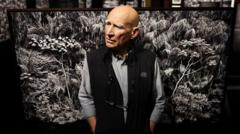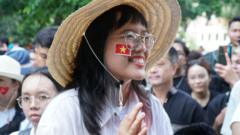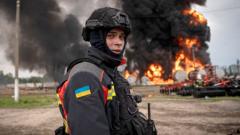As the 50th anniversary of the Vietnam War's conclusion approaches, we reflect on the powerful role of photography that defined this era, often referred to as the first "living room war." Veterans and citizens alike encountered the brutality and human suffering through striking images that not only captured the ravages of war but profoundly influenced American society's perspective on conflict.
Tim O’Brien's poignant words from "The Things They Carried" resonate strongly: “I survived…but it’s not a happy ending.” This sentiment encapsulates the emotional scars left by the war, remembered vividly through photographs that depicted a reality too harsh to ignore. Ending officially on April 30, 1975, the Vietnam War left a lasting imprint both on those who fought and the families who watched from home, solidifying its memory through vivid storytelling and imagery.
The era's most iconic images emerged from a diverse group of photographers, each contributing a unique viewpoint. Among these were Dickey Chapelle, the first female photojournalist to perish in Vietnam and known for her fervent anti-Communist stance; Tim Page, a laid-back Brit with a penchant for unconventional approaches; and Henri Huet, who brought a mix of French and Vietnamese perspectives, along with his trademark humor. Each distinct narrative shed light on the complexities of war.
These powerful images transformed the world's perception of Vietnam, ultimately shifting the way Americans viewed their soldiers and the broader implications of war. As the visual medium forged a pathway into the hearts and minds of the American public, the Vietnam War became not just a historical event but a cultural touchstone—reminding society of the heavy costs of conflict and the importance of empathy in understanding the human experience amidst the chaos of war.





















